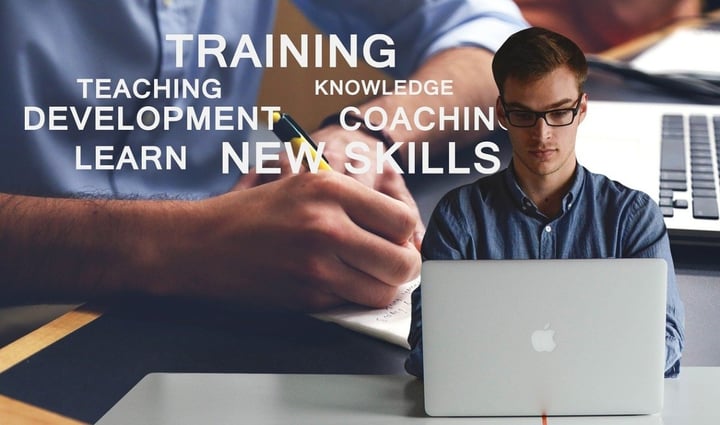FILM - Frntlne Interactive Learning Methodology

Dr David Isaacson, PhD
RTO Compliance Specialist, learning/software solutions and transformations.
PhD, Dip. Qual. Audit., Cert 4 TAE, Accredited 6 Thinking
RTO Compliance Specialist, learning/software solutions and transformations.
PhD, Dip. Qual. Audit., Cert 4 TAE, Accredited 6 Thinking
From Dr David Isaacson's Learning Design Project Case Book
Frntlne Interactive Learning Methodology (FILM) was designed for Frntlne Technologies in collaboration with Dr David Isaacson, a professional learning designer who specialised in Cognitive Load Theory for his PhD degree. Frntlne Technologies CEO Mark John says, "Memory retention and recall are critical in the industries we work in. FILM has been created to optimise these which is an important part of providing strong ROI for our clients. Working with David has been pivotal to our business as without a robust learning matrix we wouldn't be able to achieve the outcomes that our customers expect."
FILM is based on an interactive, personalised model of learning using strategies that have been validated in best practices and evidence-based educational research. As a personalised model, FILM takes the needs of learners into account - busy, young, media-savvy salespeople who need to have a high level of specialised product knowledge at their fingertips that will enable customers to make informed and intelligent buying decisions. Avoiding cognitive load is critical to the methodology, which aims to impart expertise and while avoiding extraneous load on the limited working memory of learners.
FILM is delivered via an online learning platform that is optimised for delivery via all devices; smart phones, devices, laptops or desktop computers. Learners log into their own personalised learning environment where they can engage in and manage their own learning pathway towards mastery of all their product knowledge modules.
In FILM modules, key product knowledge is packaged in efficient, micro-modules that target the needs of sales agents. Using scenario-based learning methodology, knowledge is presented through interactive scripts that model the conversations sales agents will have with customers. The everyday language of the scripts ensures that product knowledge is front and centre without learners being distracted by unnecessary language or information.
The structure of FILM modules reinforces key knowledge while avoiding redundant material. For example, the 10/24/7 model provides “mini-refresher” interactions at the end of modules (10 minutes after learning), a day later (24 hours after the module) and a week later (7 days after the module). The 10/24/7 model is underpinned by variability (repeated questions are rephrased) in order to ensure that learners are not just learning by rote, but thinking how it would apply in different situations that are unique to each customer.
As it is important for learners to remember key technical and general product knowledge in each module, the “primacy and recency” principle has also been integrated into the learning format. This principle states that learners remember the first and last information presented. In terms of learning design, this translates to having many beginnings and endings, i.e. short scripts and bursts of information, rather than large text-dumps that induce cognitive overload and boredom. Instead, frequent review and summary sections are presented that are interlinked to form a holistic and integrated picture that drills down to a deep level of specialised knowledge.
Each module starts and ends with a range of refresher question from the previous module - called advance organisers. Key concepts are reinforced by the use of a range of multimedia formats and their combinations: video, audio, graphics, questions and podcasts. All of this adds up to a rich and varied multimedia experience that enables learners to master the knowledge they need to represent the brand accurately and with confidence and accuracy.
"Building a learning delivery methodology for Frntlne from theoretical principles was an interesting challenge, " says Dr. Isaacson. "Often learning is driven by technology or other factors, so going back to first principles kept the process lean and focused on the required outcomes - in this case a deep level of technical product knowledge."
Frntlne can be contacted at 0403 260 854.
.png?width=300&height=105&name=Asset%201FRNTLNE%20(2).png)